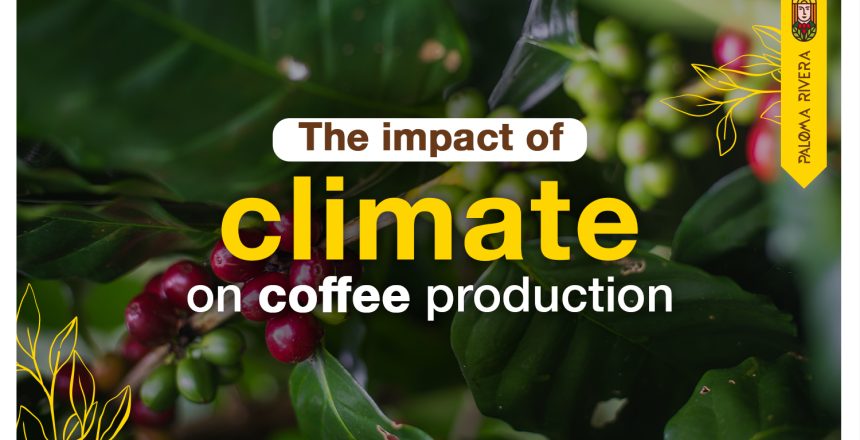At Paloma Rivera, we stand as allies of nature and trailblazers in the pursuit of exotic and special Colombian coffees.
In today’s blog, we delve into the impact of climate on coffee production, a critical aspect influencing the quality and flavor of this cherished beverage.
What is the importance of climate in coffee cultivation?
Climate plays a pivotal role in coffee cultivation, shaping every stage of the production process, from the growth of beans to their harvesting and processing.
In Caldas, where our estate is nestled, the high-altitude subtropical climate fosters optimal conditions for cultivating high-quality coffee. However, climate shifts can significantly impact coffee production and quality.
Climate variability and its effects on coffee production
Climate variability, including phenomena like El Niño and La Niña, can trigger abrupt changes in local weather conditions, affecting the growth and development of coffee plants.
Prolonged droughts, excessive rainfall, or extreme temperatures can diminish crop yields and compromise the quality of beans.
At Paloma Rivera, we are committed to mitigating these effects through sustainable farming practices and meticulous selection of our suppliers.
Amid prolonged heatwaves, it is crucial to implement regular water sprinklings to maintain adequate hydration for both the plant and its roots. This practice significantly contributes to the healthy development of upcoming harvests.
Current situation in the first half of 2024 for coffee
The current coffee production has been impacted by intense heatwaves, resulting in a significant decrease in harvested quantity.
It’s important to note that during the first months of the year, this region traditionally experiences very low production.
Climate plays a fundamental role in coffee production, affecting the time required for beans to mature. In areas with high temperatures, the maturation period tends to be shorter.
However, coffee plants growing in conditions of intense heat may absorb fewer nutrients, resulting in a cup quality characterized by a light body and flat taste.
It’s essential to understand this climatic dynamic to properly manage production and ensure consistent coffee quality.
Adaptation and resilience in the coffee industry
At Paloma Rivera, we take pride in supporting producers committed to quality and sustainability.
We also recognize the importance of understanding and addressing the challenges posed by climate change to ensure the quality and sustainability of our exotic and specialty coffees.
We pledge to continue being allies of local producers and to offer our customers a unique and authentic experience with every cup of coffee they enjoy.
Discover our selection of single-origin coffees and savor the passion and care we pour into each bean.

